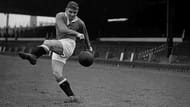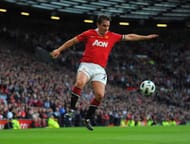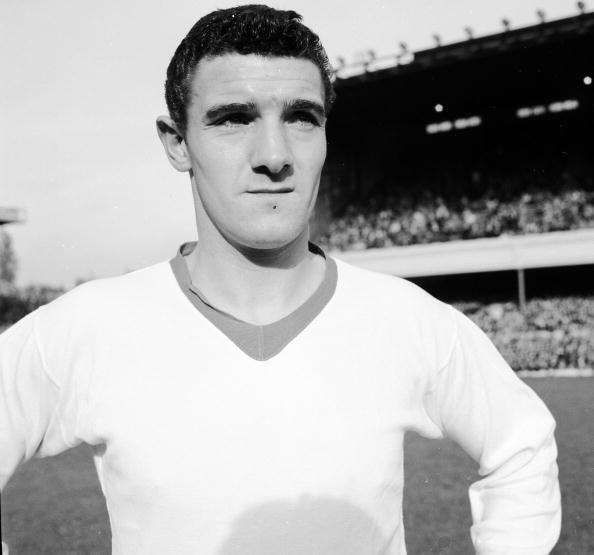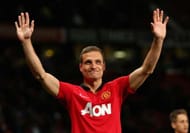Right-back: Gary Neville
Gary Neville was the epitome of a one-club man, coming through the Manchester United academy and making his debut for the first-team in 1991. His went on to spend his entire career at the club, making 602 appearances and scoring seven goals before eventually calling it quits in 2011.
A consummate professional, he was not only United’s, but arguably also the Premier League’s best right-back for a vast majority of his career at the very top-level. In his 2 decades as a first-team player, Neville won 20 major honors, including eight league titles, three FA Cups, two League Cups, and two Champions League crowns.
(Video Courtesy: ReaperWins YouTube Channel)
He was also voted into the PFA Premier League Team of the Year on five separate occasions and even served as club captain for five years. A brief and ill-advised stint at Valencia aside, Neville has now made quite a name for himself as one of the most respected and well-informed pundits around.
Centre-back: Bill Foulkes
Now we come to one of the signings in this list that wasn’t in the Alex Ferguson era – Bill Foulkes. Initially discovered by United while playing for Whiston Boys club, he joined the Red Devils’ youth academy as an 18-year-old before eventually making his professional debut against Liverpool in 1952.
While he initially continued to work part-time at a coal mine, feeling he wasn’t good enough to play full-time league football, Foulkes would go on to stay at Old Trafford for nearly two decades, making 688 appearances for the club and scoring 9 goals.
He was one of the few survivors of the Munich air disaster that claimed the lives of eight of Manchester United’s first team, he even went on to captain the club during one of the most difficult periods in its storied history.
He would start the fabled match against Benfica in the European Cup final on 29 May 1968 as United became the first ever English club to win the prestigious trophy. His time at the club also saw him win four league titles, an FA Cup and four Charity Shields.
Centre-back: Nemanja Vidic
This was a toss-up between Vidic, Steve Bruce and Rio Ferdinand, but we decided we’d like to go with the Serbian amongst three, though you could make a case for any of the aforementioned individuals.
One of the more amazing things about Vidic is that his signing was a fairly quiet one, without much pomp. Signed for a bargain fee of £7 million from Spartak Moscow, he went on to become a mainstay in a United side dominating both the domestic and European scene, forming a formidable partnership with Rio Ferdinand; memorably starting every match in the league as Manchester United went a record 14 games without conceding a goal.
(Video Courtesy: AP Editing YouTube Channel)
In his nine seasons with the club, the big Serb won five league titles, three League Cups, two FIFA Club World Cups, five Charity Shields and the 2007/08 Champions League title while also becoming a fan favourite.
Left-back: Duncan Edwards

Edwards was a graduate of United’s youth academy and part of the team that lifted the first ever FA Youth Cup in 1953. He also set a record on his debut in the First Divison in a match against Cardiff City; aged 16 years and 185 days, he became the youngest ever to play in the top division.
His consistent performances for the first team saw him called up to the national setup, making his debut for England aged 18 years and 183 days, the team’s youngest debutant since the second World War; a record that stood until it was broken my Michael Owen in 1998.
(Video Courtesy: Dawn Crystal YouTube Channel)
He would then play an instrumental role as United won the league in 1955/56 by 11 points, making 33 appearances that season. He also appeared regularly in United’s first ever campaign in the European Cup, including a 10-0 win over Anderlecht; a margin that remains the biggest ever in the club’s history.
He was sadly one of the victims of the Munich air disaster, having survived the crash, but passing away in the hospital. In total, he made 177 appearances and scored 21 goals for the club and had long cemented his reputation as a club legend.



